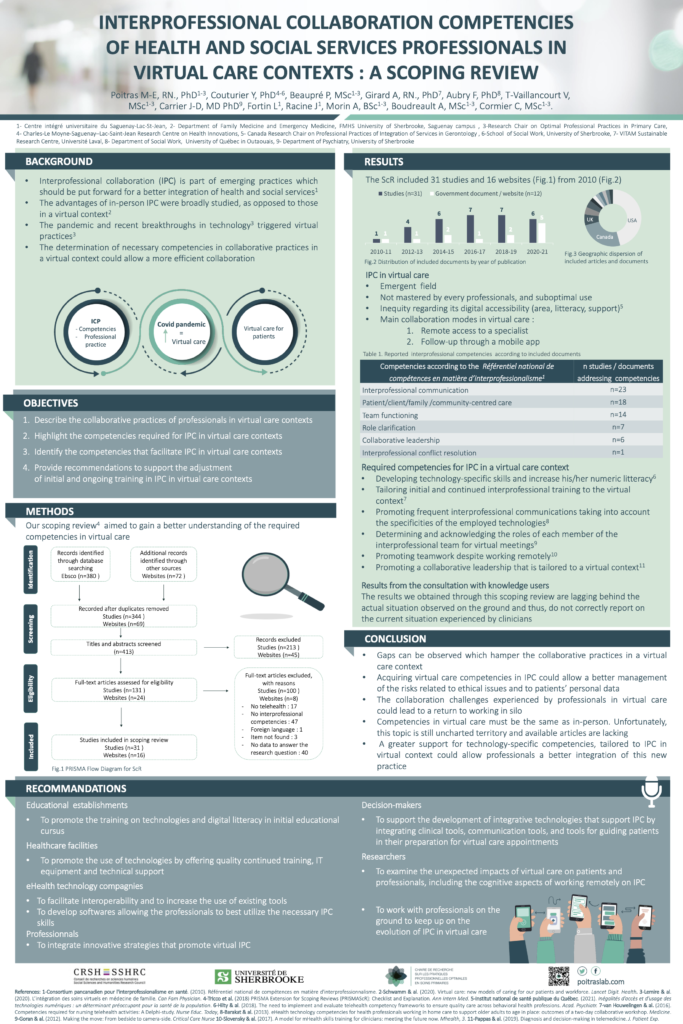Background : Collaborative care (CC) is an essential and effective approach to implement patient-centered care. It increases professional’s job satisfaction , the quality of their professional practice and patient engagement. In the context of a pandemic, many health care and social services professionals have had to turn to virtual care. In the workplace, professionals are often not sufficiently empowered to collaborate and adress CC barriers in virtual care. The objective of this scoping review is to identify the collaborative practice competencies needed by health care and social professionals in virtual care. Population : All health care and social service professionals. Study design : A scoping review based on the methodology of Arksey and O’Malley methodological framework was carried out. Methods : We included all studies that explored the CC competencies needed by health professionals to work in virtual care settings. Both quantitative and qualitative studies were included in this synthesis. We included peer reviewed articles published between 2010 and 2021. We also expanded the inclusion of data sources by searching for any type of organization and/or experts in the field via the Google search and by searching targeted websites. Results : Thirty-two studies and twenty-four documents from websites were included. Three types of outcomes were sought: 1) Collaborative care practices in virtual care; 2) Competencies for collaborative care practices in virtual care; and 3) Facilitators and barriers to CC in virtual care. Conclusion : Health and social service professionals are not aware of the collaborative skills they need to develop in the context of virtual care. In an era of digital innovations, we believe this is undermining the quality of their practice.
Spring Virtual Conference April 17-18th | In-Person Annual Conference in San Antonio, TX Oct 24-26th


Leave a Reply